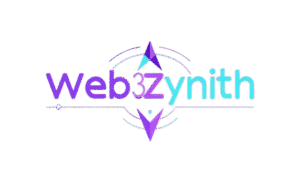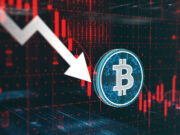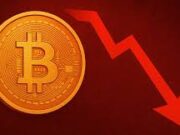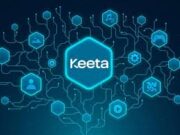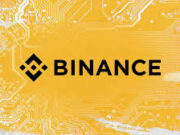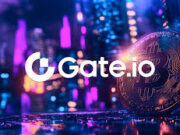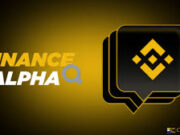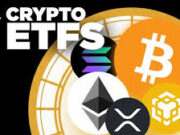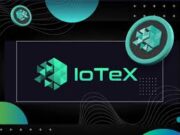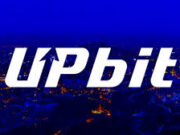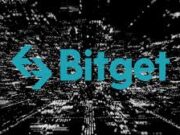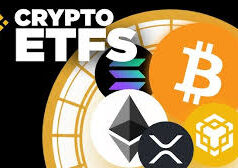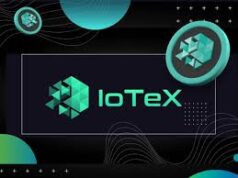The financial world is buzzing with eToro’s latest announcement: the trading platform plans to tokenize U.S.-listed stocks on the Ethereum blockchain, paving the way for 24/7 trading. This move, revealed during their global webinar “eToro Unlocked: Trade Without Boundaries” on July 29, 2025, signals a seismic shift in how we think about investing. By blending traditional finance with blockchain technology, eToro is not just keeping up with the times—it’s trying to redefine them. Let’s unpack what this means, how it works, and where it could take us.
The Big Idea: Stocks That Never Sleep
Imagine trading Apple or Tesla shares at 2 a.m. on a Sunday. Sounds like a dream, right? eToro’s plan to tokenize U.S. stocks as ERC-20 tokens on Ethereum aims to make this a reality. Unlike traditional stock markets, which operate within strict hours (9:30 a.m. to 4:00 p.m. EST for the NYSE, for example), tokenized stocks on a blockchain can be traded any time, day or night. This is a game-changer for global investors, especially those in different time zones who’ve long been frustrated by the rigid schedules of legacy markets.
eToro’s CEO, Yoni Assia, didn’t mince words: “Our mission has always been to open the global markets. Tokenization brings 24/7 accessibility.” The platform will start with 100 popular U.S.-listed stocks and ETFs, allowing users to trade these assets outside traditional hours. But it’s not just about extended hours—tokenization could fundamentally change how we interact with financial assets.
How Tokenization Works (and Why It’s Cool)
Tokenization sounds like tech jargon, but it’s pretty straightforward. eToro will hold physical shares of U.S. stocks in a regulated account and issue digital tokens (ERC-20 tokens, to be specific) on the Ethereum blockchain to represent those shares. Each token mirrors the value of the underlying stock, and users can trade these tokens through eToro’s app. If you want to cash out, you can redeem your tokens for the actual shares—or vice versa.
Why Ethereum? It’s a natural choice. Ethereum’s smart contract functionality allows for transparent, automated processes like dividend distribution and ownership tracking. Plus, its massive developer ecosystem means these tokens can potentially integrate with decentralized finance (DeFi) platforms, opening doors to new investment strategies. Think lending your tokenized Tesla shares to earn interest or using them as collateral in a DeFi protocol. It’s like giving your stocks superpowers.
eToro’s not starting from scratch here. They’ve been dipping their toes in tokenization since 2019, when they acquired Danish startup Firmo and launched tokenized gold (GOLDX) and silver (SLVX). This experience gives them a head start, but scaling to U.S. equities is a whole new ballgame.
Breaking Down Barriers to Investing
One of the most exciting aspects of this move is how it democratizes access to the stock market. Tokenized stocks can be split into fractions, making it easier for retail investors to buy into high-priced stocks like Amazon or Google without needing thousands of dollars upfront. This fractional ownership, combined with 24/7 trading, lowers the entry barriers for people who might’ve felt locked out of traditional markets.
Then there’s the global angle. eToro, with its 40 million registered users across 75 countries, is well-positioned to bring U.S. equities to a worldwide audience. Investors in Asia, Europe, or Africa won’t have to wait for Wall Street to open—they can trade on their own schedules. Assia put it best: “Tokenization removes boundaries, providing transparency and control. It has the potential to democratize finance.”
The Regulatory Green Light
This isn’t happening in a vacuum. New regulations like Europe’s Markets in Crypto-Assets (MiCA) and the U.S.’s Genius Act are creating a legal framework for tokenized assets. These laws ensure that digital assets are backed by real-world securities and meet compliance standards, which is crucial for investor trust. Without this regulatory clarity, tokenization could’ve remained a niche experiment. Instead, it’s becoming a legitimate bridge between traditional finance and the crypto world.
But it’s not all smooth sailing. Some X users have raised concerns about regulatory risks, pointing out that the SEC’s approval of tokenized assets might face political pushback or bureaucratic hurdles. Others worry about custody—how do you trust that the physical shares backing these tokens are secure? These are valid questions, and eToro will need to prioritize compliance and transparency to keep users confident.
The Competitive Landscape
eToro isn’t alone in this race. Platforms like Robinhood, Kraken, Coinbase, and Gemini have also jumped on the tokenized stock bandwagon. Robinhood rolled out tokenized equities for European users last month, while Kraken’s xStocks platform launched 24/5 trading in June. Coinbase is even seeking SEC approval to offer tokenized stocks in the U.S., aiming to compete directly with traditional brokerages.
What sets eToro apart? Its focus on DeFi integration. By enabling users to move tokenized stocks onto the blockchain and interact with DeFi ecosystems, eToro is betting on a future where traditional and decentralized finance blur together. This could give them an edge, especially among crypto-savvy investors who want more flexibility than legacy platforms offer.
On the Horizon
Nothing this ambitious comes without risks. Ethereum’s scalability issues, like high gas fees, could make trading tokenized stocks expensive during network congestion. Smart contract vulnerabilities are another concern—any bug could lead to financial losses or security breaches. eToro’s regulated status helps, but they’ll need to stay vigilant to avoid pitfalls.
Liquidity is another question mark. Some X users have pointed out that tokenized stocks might not guarantee the same market depth as traditional exchanges. If trading volumes are low, price swings could be more volatile. eToro’s plan to start with 100 popular stocks and ETFs is smart—it ensures there’s enough interest to keep things liquid—but scaling to less popular assets could be trickier.
The Bigger Picture: A Financial Revolution?
eToro’s move is more than a product launch; it’s a glimpse into the future of finance. Tokenization could blur the lines between stocks, cryptocurrencies, and other digital assets, creating a more integrated investment landscape. Imagine a world where you can trade stocks, lend them in DeFi protocols, or use them as collateral for a loan—all on the same platform. That’s the vision eToro is chasing.
This also ties into a broader trend of financial institutions embracing blockchain. From JPMorgan’s Onyx platform to BlackRock’s tokenized funds, the industry is waking up to the potential of digital assets. eToro’s initiative could accelerate this shift, showing that blockchain isn’t just for crypto bros—it’s for anyone who wants more control over their investments.
Where This Could Lead
Looking ahead, eToro’s tokenized stocks could reshape how we think about wealth creation. By making U.S. equities accessible 24/7 and integrating them with DeFi, eToro is building a bridge between Wall Street and the blockchain. If successful, this could inspire other platforms to follow suit, creating a more open, flexible financial system.
But success isn’t guaranteed. Regulatory hurdles, technical challenges, and competition will test eToro’s resolve. They’ll need to execute flawlessly to maintain trust and deliver on their promise of “trading without boundaries.” For now, the platform is starting in Europe, with plans for a broader rollout. Investors will be watching closely to see if eToro can pull it off.
In Ending
eToro’s plan to tokenize U.S. stocks on Ethereum is a bold step toward a more accessible, transparent financial future. It’s not just about trading stocks at midnight—it’s about giving investors more freedom, breaking down barriers, and blending the best of traditional and decentralized finance. While challenges remain, the potential rewards are huge. If eToro can navigate the regulatory and technical complexities, they might just redefine what it means to invest in the 21st century. Keep an eye on this space—it’s about to get interesting.
